I love to read and particularly enjoy stories about my Jewish ancestors. I discovered Guesthouse for Ganesha because a friend, Judith Teitelman, wrote it, and it starts with my middle name, Beth.
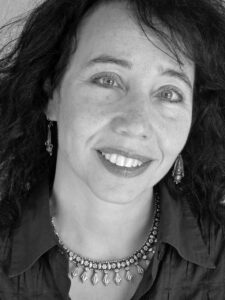
Judith Teitelman.
Judith writes, “‘Beth’ (or ‘Bet’) is the second letter of the Hebrew alphabet… It represents the beginning of duality, where there is both a giver — the Creator — and a receiver — the created world. The literal meaning and form of the letter ‘Beth’ denotes a house, underscoring that the created world is meant to house the spiritual within it.”
She quotes Rumi — “Be grateful for whoever comes, because each has been sent as a guide from beyond.” Years ago, desperate to find my purpose, I fervently prayed for help, and everything that has happened since then has answered this prayer. Guesthouse for Ganesha resonated with me since it is a tale of love, loss, survival, and spirit reclaimed.
During the pandemic lockdown, while we all yearned for connection, I started to program the series Culture TALKS! This book was the first idea to present how sharing disparate cultures can bring us closer. Judith introduced me to Malathi Iyengar, artistic director of Rangoli Dance, and thus, the concept of our upcoming gathering this month at the Cabrillo Marine Aquarium was born.
Malathi established the Rangoli Foundation for Art & Culture and Rangoli Dance Company in 1985 to share India’s performing and visual arts. The company features the vibrant south Indian dance form Bharatanatyam, a traditional Indian dance form with origins in the temples of South India.
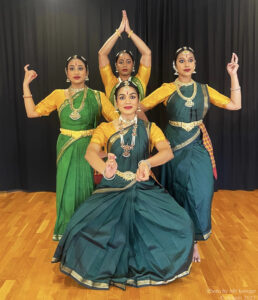
Rangoli Dance Company.
While working through bookstores, art galleries, and the cultural arts scene for over three decades, Judith was always a writer at heart. After seeing the novel’s title mysteriously inscribed in an old journal, she worked diligently for four years chasing what it meant. The result was Guesthouse for Ganesha, her debut novel.
Judith and Malathi will join me in conversation about the book, with a presentation of Indian dance by Malathi’s Rangoli Dance Company on May 7 at the Cabrillo Marine Aquarium. I recently spoke to both of them to learn more about their stories.
Grimes: How did you first discover you were an artist?
Malathi Iyengar: I remember being involved in creating sand mandalas called rangoli for the village festivities when I was nine years old. I was engaged in drawing, painting, [and] singing as far back as I can remember. Dance came to me as an adult. I learned and pursued Bharatanatyam along with my daughter and studied under a traditional master teacher, Guru Narmada, from India.
Judith Teitelman: I don’t know [if] it was a “discovery” per se, as from my earliest memories, I was always drawn to the arts, all the arts — visual, performance, literature, films, music, architecture. I began studying dance when I was very young and always painted and drew and created collage and assemblage artworks.
How did your family’s support manifest itself?
Iyengar: I was able to complete my graduate studies [at] UCLA (Master in Choreography), a certificate program in architectural and graphic design, perform a solo dance debut, build a dance company, and accept touring opportunities — all because of their unconditional support.
Teitelman: As a young child, my mother took me to dance classes and the library regularly, and when I was old enough, I went on my own.
How did you two meet?
Iyengar: I met Judith’s husband Aaron Paley back in 1999. He organized the Getty Family Festivals, and our company has performed several times at the Getty since 1999. Aaron Paley is president and co-founder of Community Arts Resources (CARS), a co-founder and founding executive director of CicLAvia, and the founder of Yiddishkayt.
Teitelman: As mentioned, in one of my parallel realms, I’m an organizational development consultant specializing [in] arts and cultural organizations and individual artists. Malathi was one of my clients through Pentacle L.A.’s Help Desk program.
Why did you write Guesthouse for Ganesha?
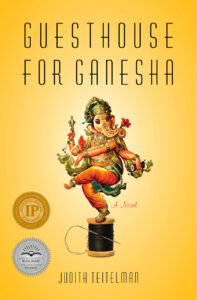
The cover to Guesthouse for Ganesha.
Teitelman: I never intended to write fiction or poetry and very much consider myself yet another accidental novelist. In 2001, a close friend started a Saturday morning writing group and more than insisted I join. I showed up every Saturday at 10 a.m. with a soy latté in one hand and pens and paper in the other. It was the showing up that began to crack my resistance.
Another month or more passed, and the death of a man I was involved with in my early 20s led me back to a journal from those years. Recapturing this period in my life, I came upon an inscription dated 25 June, 1983, that read, “The title is Guesthouse for Ganesha.” Nothing leading up to it, nothing written afterwards, no explanation.
Although I was still unclear as to what it meant, I spent the next four years of Saturday mornings working diligently to figure it out. The lesson here, one that we all inevitably learn, is life will often take us in directions that we can’t otherwise imagine, but [we] are exactly where we need to be. spt
Culture TALKS! with Guesthouse for Ganesha, featuring an Indian dance demonstration by Rangoli Dance Company, will take place at Cabrillo Marine Aquarium (3720 Stephen M. White Dr.) on Sunday, May 7 at 2 p.m. For tickets and more information, visit sanpedrowaterfrontartsdistrict.com.

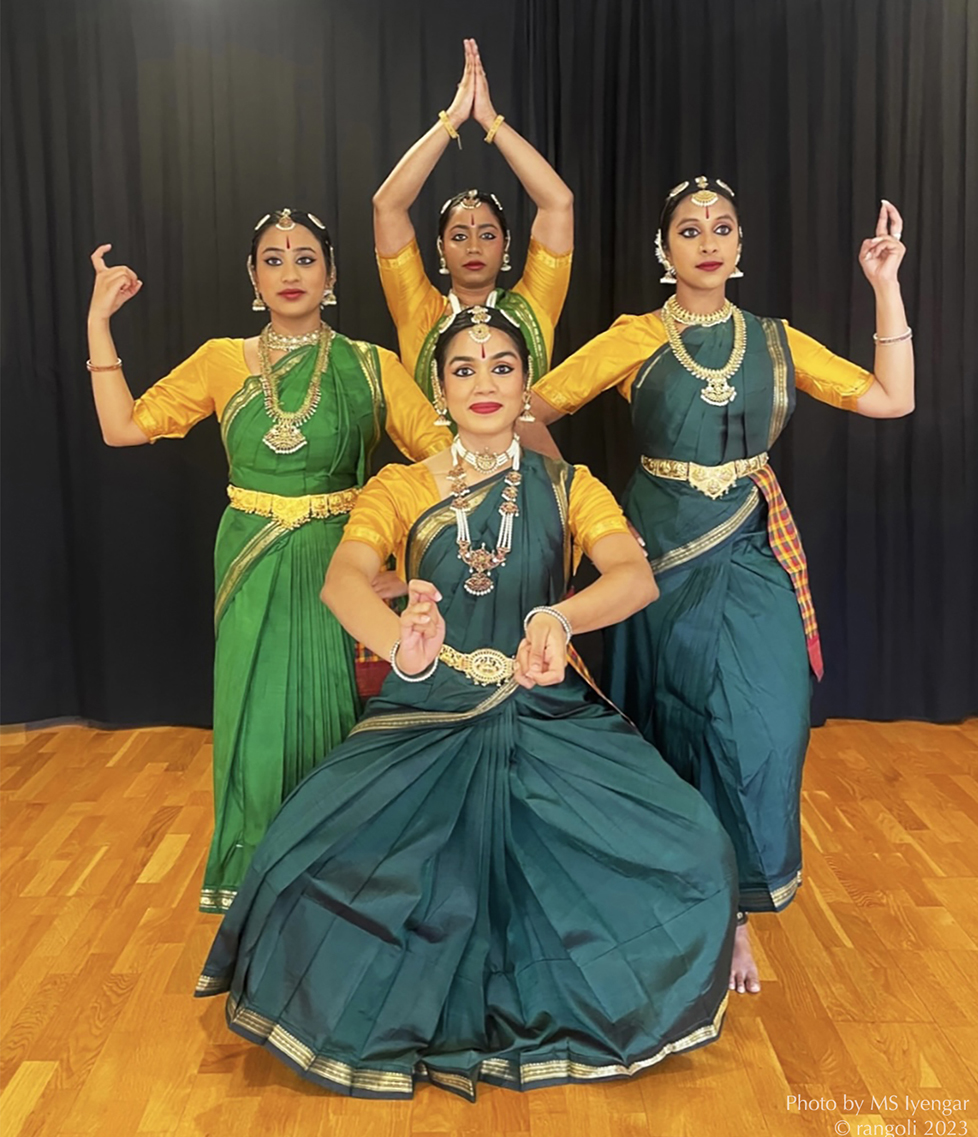
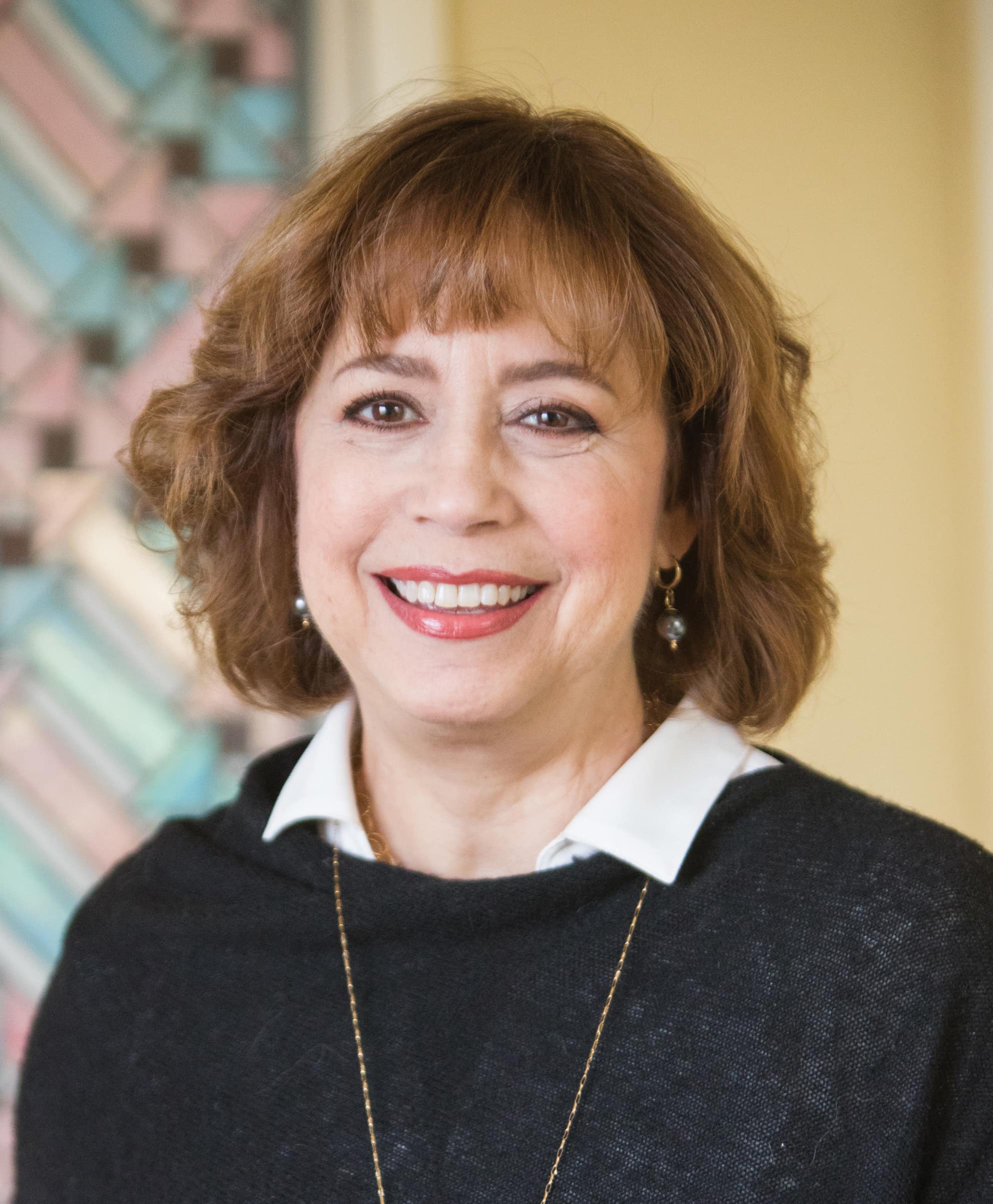
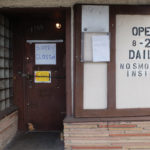



Comments